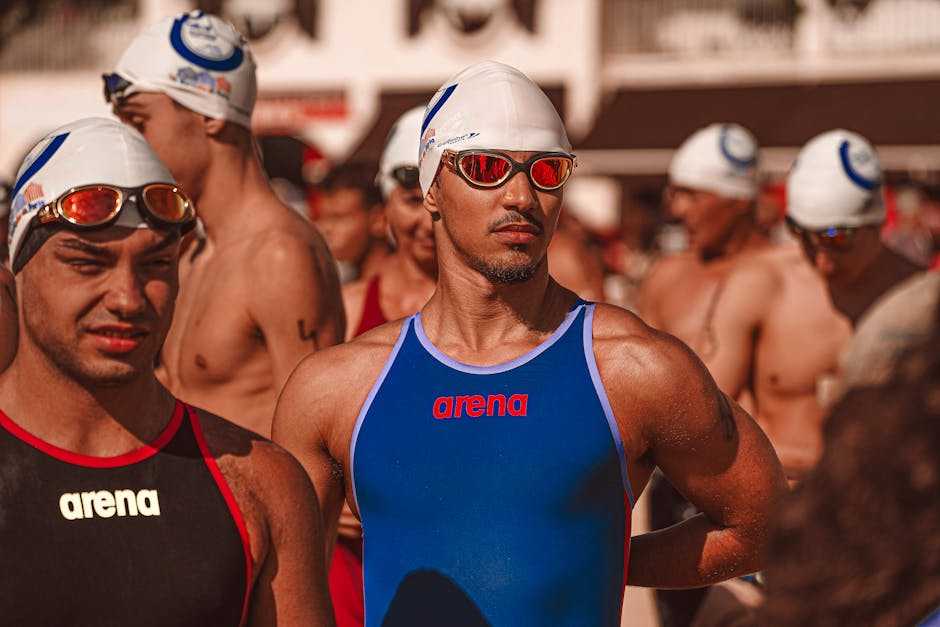As a seasoned nutrition expert, I understand the critical role that meal planning plays in optimizing performance for swimmers. Balancing macro and micronutrients is key to fueling the body effectively and ensuring peak athletic output in the water. In this article, I’ll delve into the intricacies of designing a nutrition plan tailored specifically to the needs of swimmers, focusing on the right mix of proteins, carbohydrates, fats, vitamins, and minerals.
Swimmers require a well-rounded diet that not only provides energy but also supports muscle recovery and overall health. By strategically incorporating the right balance of macronutrients like lean proteins for muscle repair, complex carbohydrates for sustained energy, and healthy fats for joint health, swimmers can enhance their performance and endurance in the pool. Additionally, paying attention to micronutrients such as vitamins and minerals is crucial for maintaining immunity and overall well-being.
Understanding the Nutritional Needs of Swimmers
As a nutrition expert, I recognize the critical role of balancing macro and micronutrients in a swimmer’s meal plan. Let’s delve into how these nutrients impact the performance and overall health of swimmers.
Importance of Macronutrients
When crafting a nutrition plan for swimmers, I prioritize macronutrients like proteins, carbohydrates, and fats. Proteins aid in muscle repair and growth, essential for swimmers to recover effectively after intense training sessions. Carbohydrates serve as the primary fuel source, providing the energy needed for optimal performance in the water. Fats play a crucial role in providing long-lasting energy, particularly during endurance swims. By balancing these macronutrients, swimmers can enhance their strength, endurance, and overall performance.
Significance of Micronutrients
Incorporating micronutrients such as vitamins and minerals is equally vital for swimmers’ well-being. These micronutrients play a key role in supporting various physiological functions, including immune system function, bone health, and energy production. Nutrient-rich foods like fruits, vegetables, whole grains, and lean proteins supply swimmers with the necessary vitamins and minerals to maintain overall health and optimize their training outcomes. By paying attention to micronutrient intake, swimmers can bolster their immune system, reduce the risk of illnesses, and sustain peak performance levels in the pool.
Meal Planning Basics for Swimmers

When meal planning as a swimmer, it’s crucial to focus on meeting your body’s caloric needs and timing your meals effectively around training sessions.
Determining Caloric Needs
I always determine my caloric needs by considering factors like my age, weight, activity level, and training intensity. By calculating the total energy expenditure during workouts and daily activities, I ensure I consume enough calories to fuel my performance and support muscle recovery.
Timing Meals Around Training
It’s essential for me to time my meals strategically around my training sessions. I find it beneficial to eat a balanced meal containing carbohydrates and proteins a few hours before practice to fuel my workout. Additionally, I prefer having a post-workout meal rich in proteins and carbohydrates to aid muscle recovery and replenish glycogen stores. By aligning my meals with my training schedule, I optimize nutrient absorption and enhance my overall performance in the water.
Sample Meal Plans and Recipes
As a swimmer, I understand the importance of proper nutrition to fuel my performance in the pool. Here are some sample meal plans and recipes tailored to help swimmers balance their macro and micronutrient intake effectively.
Breakfast Options
- Protein-Packed Oatmeal Bowl:
Ingredients: 1/2 cup rolled oats, 1 scoop of whey protein powder, 1 tablespoon almond butter, and 1/2 sliced banana.
Instructions: Cook oats with water, mix in protein powder, and top with almond butter and banana slices for a nutritious start to the day. - Greek Yogurt Parfait:
Ingredients: 1 cup Greek yogurt, 1/4 cup granola, 1/2 cup mixed berries, and a drizzle of honey.
Instructions: Layer yogurt, granola, berries, and honey in a glass for a protein-rich and antioxidant-packed breakfast. - Grilled Salmon with Quinoa and Roasted Vegetables:
Ingredients: 6 oz grilled salmon fillet, 1/2 cup cooked quinoa, and a variety of roasted vegetables (bell peppers, zucchini, and cherry tomatoes).
Instructions: Season and grill the salmon, serve with quinoa, and roasted vegetables for a balanced meal rich in omega-3s, protein, and fiber. - Turkey and Avocado Wrap:
Ingredients: Whole-grain wrap, sliced turkey breast, avocado, lettuce, tomatoes, and mustard.
Instructions: Fill the wrap with turkey, avocado, veggies, and mustard for a quick and satisfying lunch on-the-go.
These sample meal plans and recipes provide swimmers with delicious and nutrient-dense options to support their training, recovery, and overall performance in the water. By incorporating a variety of foods rich in proteins, carbohydrates, fats, vitamins, and minerals, swimmers can ensure they meet their nutritional needs to excel in their sport.
Supplement Use in Swimming
Supplements can play a crucial role in enhancing a swimmer’s performance by providing targeted support for optimal nutrition. Here, I delve into when supplements are needed and recommend essential supplements for swimmers to consider incorporating into their diet.
When Supplements Are Needed
As a swimmer, I understand the importance of meeting nutritional requirements to support my training and performance. Supplements may be needed in cases where dietary intake alone is insufficient to meet the demands of intense training and competition. Factors such as increased training volume, limited food availability, or specific dietary restrictions can contribute to the need for supplements in a swimmer’s regimen.
Recommended Supplements
In my experience, certain supplements can benefit swimmers by addressing specific nutritional needs. Consider incorporating the following supplements into your diet under the guidance of a healthcare provider or nutritionist:
- Protein Powder: Protein is essential for muscle repair and recovery. A high-quality protein powder can be convenient for meeting increased protein needs, especially after intense training sessions.
- Omega-3 Fatty Acids: Omega-3s are known for their anti-inflammatory properties and support cardiovascular health. Swimmers can benefit from including sources like fish oil or algae-based supplements in their diet.
- Vitamin D: Adequate vitamin D levels are crucial for bone health and immune function. Since swimmers may spend extended periods indoors or wear sunscreen during outdoor training, consider supplementing with vitamin D to maintain optimal levels.
- Electrolytes: Maintaining electrolyte balance is key for proper muscle function and hydration. Consider electrolyte supplements or specialized sports drinks to replenish electrolytes lost through sweat during training sessions.
- Multivitamins: A well-rounded multivitamin can help fill gaps in micronutrient intake, especially during periods of increased training when dietary variety may be limited. Look for a comprehensive formula tailored to the needs of athletes.
By incorporating these recommended supplements strategically and in consultation with a healthcare professional, swimmers can enhance their nutritional intake to support performance, recovery, and overall well-being in and out of the water.


 is a dedicated fitness enthusiast with a deep-seated passion for swimming and holistic health. Leveraging her extensive background in competitive swimming and personal training, she provides readers with expert advice on optimizing their workouts and enhancing their overall well-being. Kiara's writing stands out for its blend of motivation and practical tips, making complex fitness concepts accessible and actionable. She is committed to helping individuals of all levels reach their fitness goals by promoting a balanced approach to exercise and nutrition. In her articles on Swim Fast Stay Fit, Kiara shares her personal experiences, training techniques, and strategies for overcoming common fitness challenges, inspiring others to lead healthier and more active lives.
is a dedicated fitness enthusiast with a deep-seated passion for swimming and holistic health. Leveraging her extensive background in competitive swimming and personal training, she provides readers with expert advice on optimizing their workouts and enhancing their overall well-being. Kiara's writing stands out for its blend of motivation and practical tips, making complex fitness concepts accessible and actionable. She is committed to helping individuals of all levels reach their fitness goals by promoting a balanced approach to exercise and nutrition. In her articles on Swim Fast Stay Fit, Kiara shares her personal experiences, training techniques, and strategies for overcoming common fitness challenges, inspiring others to lead healthier and more active lives.
